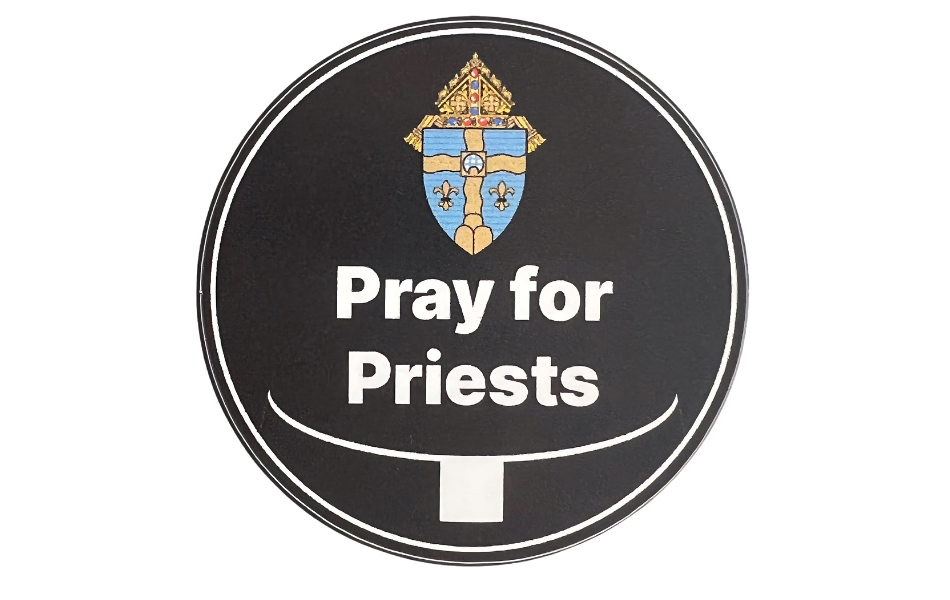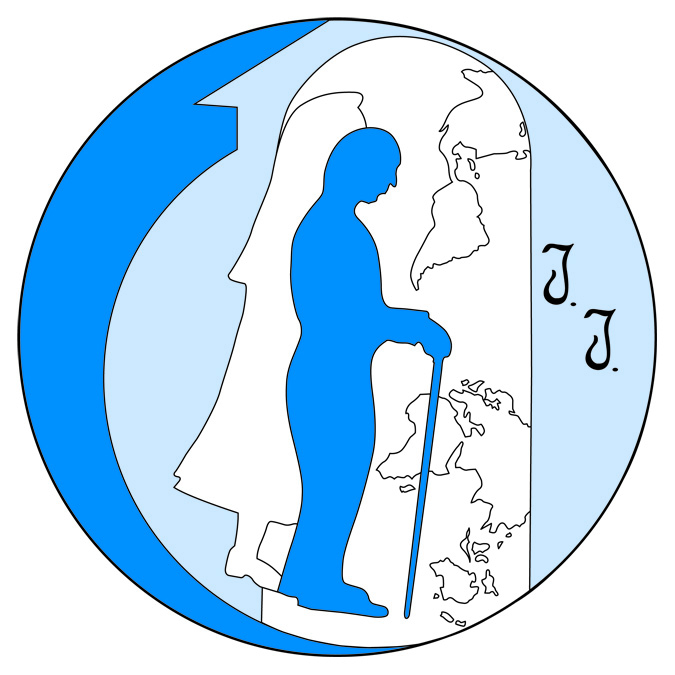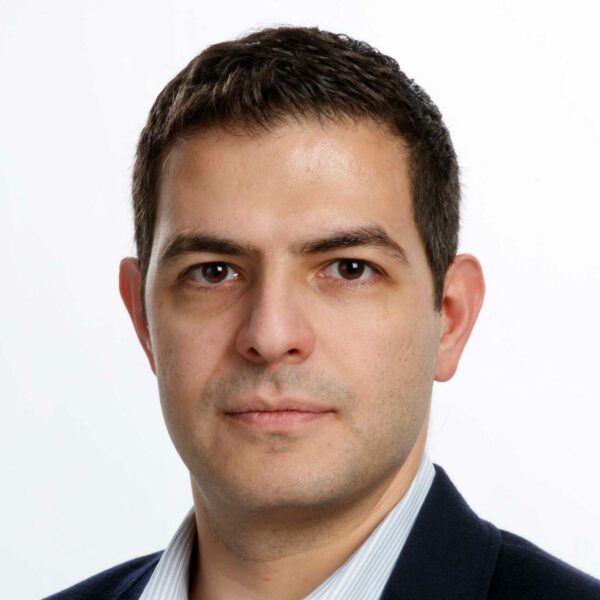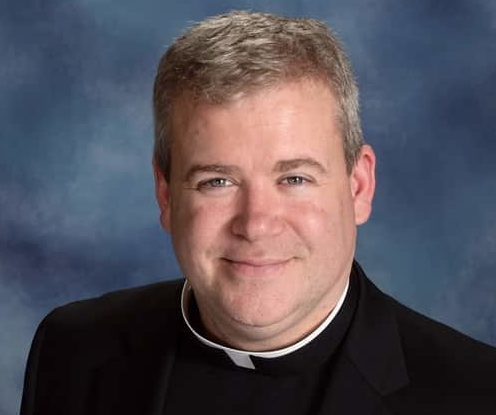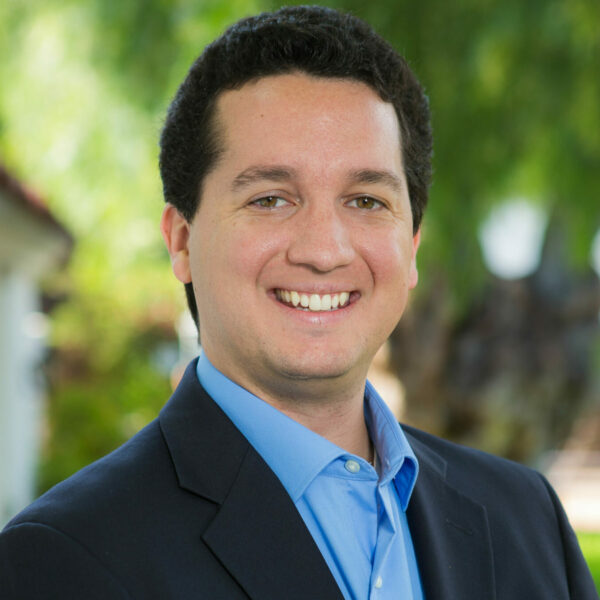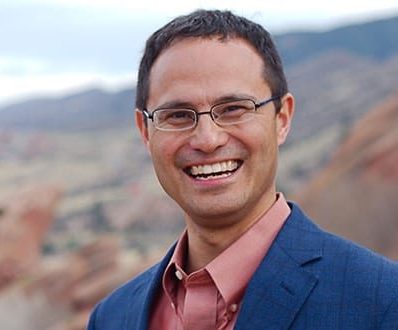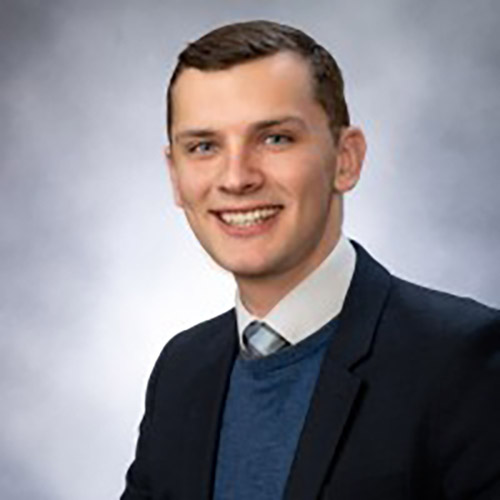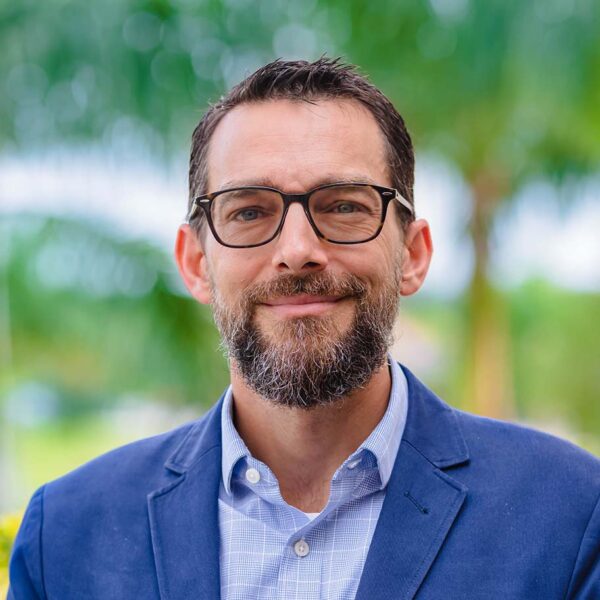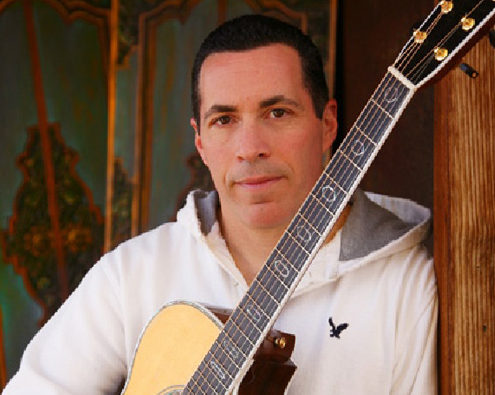Come visit us at our table in the back to learn more about vocations and meet the seminarians!
Little Sisters of the Poor
The Little Sisters of the Poor are an international congregation of Roman Catholic women religious founded in 1839 by Saint Jeanne Jugan. Together with a diverse network of collaborators, we serve the elderly poor in over 30 countries around the world. Continuing the work of Saint Jeanne Jugan, our only mission is to offer the neediest elderly of every race and religion a home where they will be welcomed as Christ, cared for as family and accompanied with dignity until God calls them to himself
Rules and Regulations
Life Teen is committed to creating an unforgettable and life-changing experience for the youth we serve at Steubenville Conferences, and effective relational ministry is key to creating this experience.
All participants are expected to maintain a Christ-centered atmosphere and treat others with respect and kindness.
Safe Environment Guidelines
All adults attending a Steubenville Conference hosted by Life Teen are responsible for setting and maintaining clear, appropriate boundaries in all ministry relationships, following the Safe Environment Guidelines laid out here. In addition to those safe environment standards, all groups should adhere to the policies defined by their home diocese. Any suspected inappropriate behavior should be reported to a member of the event staff.
Chaperone Supervision
Adult chaperones must be with youth at all times during the conference. Youth should not wander around the facility without a chaperone present. It is the chaperone’s responsibility to keep youth safe and supervised at all times throughout the weekend.
Please be sure to always maintain groups of three of more. An adult and a teen should never be alone without another person present. If, for pastoral purposes, an adult needs to have a private conversation with a minor, this must be done in the line of sight of others.
Teens are expected to remain present for every session. If it becomes necessary to leave, teens must be accompanied by an adult chaperone and at least one other individual.
Smoking/Alcohol/Weapons
Participants will not possess or be under the influence of alcohol or drugs. Except for designated outside areas, all conference venues are smoke-free facilities. Group leaders and chaperones will not smoke or use tobacco products, including vaping, or use profanity in the presence of teens. Weapons are not permitted at the event.
Sohrab Ahmari
Fr. Jeffrey Kirby
Little Sisters of the Poor
Little Sisters of the Poor is an international congregation. Continuing the work of Saint Jeanne Jugan, our mission is to offer the neediest elderly of every race and religion a home where they will be welcomed as Christ, cared for as family and accompanied with dignity until God calls them to himself.
Trent Horn
Trent Horn earned a master’s degree in theology from Franciscan University of Steubenville following his conversion to the Catholic faith. He is currently pursuing a graduate degree in philosophy from Holy Apostles College. He serves as a staff apologist for Catholic Answers and specializes in teaching Catholics to graciously and persuasively engage those who disagree with them. Trent models that approach on the radio program Catholic Answers Live, where he dialogues with atheists, pro-choice advocates, and others. Trent is also a lecturer who travels throughout the world speaking on subjects related to the Catholic faith, the co-host of Hearts and Minds, and the author of nine books.
Chapel
The Eucharistic Chapel is located in Coach Commons and is open from 7:00 a.m. to 11:30 p.m., except during Mass times.
Emergencies/First Aid/Lost & Found
Emergencies
Please call UST Public Safety for emergencies at 651-962-5555; Public Safety will contact further emergency assistance if needed. Please also call them for medical emergency during non-conference hours (11:00 p.m. to 7:00 a.m.). For Medical assistance during conference visit First Aid located in the lower level of the Anderson Athletic and Recreation Complex.
For non-medical emergencies 24 hours a day or for less urgent matters, call Amy Cummings 651-231-6815.
First Aid
For all medical needs between 7:00 a.m. and 11:30 p.m., please go to the First-Aid Station located in the Tommy room in the lower level of Anderson Athletic and Recreation Center (AARC). Call UST Public Safety, 651-962-5555, after conference hours. Youth requiring first-aid care must be accompanied by an adult. Medication requiring refrigeration should be checked in with the first-aid staff.
Lost and Found
Lost and Found is located in the Field House. If you realize after the conference that you lost something, call 952-224-0333 within two weeks to claim your items.
Smoking Policy
Except for designated outside areas, all conference venues are smoke-free facilities. During the sessions we ask all participants, including adult chaperones, to refrain from smoking.
Marketplace/Retail Hours of Operation
Marketplace
The Marketplace is in the Field House.
Marketplace Hours:
Friday, July 28th, 2023
1:00-6:30pm
Saturday, July 29th, 2023
7:00-8:30am
11:00am-4:00pm
5:15-7:15pm
10:00-11:00pm
Sunday, July 30th, 2023
7:00-8:30am
Dress Code
Dress Code
All participants, including adults, are expected to dress appropriately in modest attire. TOPS: no low-cut, spaghetti straps, muscle shirts, sleeveless, or off the shoulder. BOTTOMS: no miniskirts or short shorts—the hemline must be at fingertip-length or below when arms are hanging at the side. NOTE: Yoga or athletic pants are OK but only when worn WITH a fingertip length modest tunic. Absolutely no clothing with offensive language or obscene pictures is allowed. In addition, all clothing must cover midriffs and undergarments.
Dr. Edward Sri
Dr. Edward Sri is a theologian, author, and well-known speaker who presents to people around the world. He has written several best-selling books, including No Greater Love; Who Am I to Judge?, Walking with Mary, and his latest, The Art of Living: The Cardinal Virtues and the Freedom to Love. He is the presenter of several faith formation programs, including Symbolon: The Catholic Faith Explained. With Curtis Martin, he is a co-founder of FOCUS (Fellowship of Catholic University Students) and currently serves as senior vice president of Apostolic Outreach. Dr. Sri leads pilgrimages to Rome and the Holy Land and hosts “All Things Catholic podcast.” He and his wife, Elizabeth, are blessed with eight children and reside in Littleton, Colorado.
Clement Harrold
Michael Dauphinais
Dr. Michael A. Dauphinais, serves as the Father Matthew Lamb Professor of Catholic Theology and co-director of the Aquinas Center for Theological Renewal at Ave Maria University in Florida. He holds academic degrees from Duke University and the University of Notre Dame. He has co-authored several books, authored numerous scholarly articles, and co-edited over 10 scholarly books in the areas of Thomas Aquinas, the Bible, and the renewal of Catholic theology. He launched a podcast, “The Catholic Theology Show,” to help a wide audience discover the richness of coming to understand God as he has revealed himself in Jesus Christ. A grateful revert to the Catholic Church, he has been married to his wife, Nancy, for almost 30 years.
Steve Angrisano
As a speaker and music missionary, Steve Angrisano has been featured at major events in every diocese of the United States including countless Steubenville youth conferences. His passionate message of faith, hope, and love is masterfully woven throughout his music, speaking, and storytelling. Steve’s easy, honest style of ministry is born from who he is: a committed witness to the life and love of Jesus Christ.
Have a Question for the Ministry Team?
Workshop Session 7: Thursday, 8:00 am – 9:15am
1. Fidelity to God and Humanity: How the Human Sciences Can Inform Religious Education Dr. Joseph White (Cosmas and Damian, Pugliese Auditorium)
The new Directory for Catechesis calls us to be faithful both to God and to humanity as we form others in faith and points out how “faithfulness to humanity” means understanding what human sciences like education, human development, and psychology teach us about how people think, grow, and learn. In this session, we’ll talk about how to use what we know about the human person to make our catechesis more engaging and effective.
2. Catechesis in the Period of Purification and Enlightenment (RCIA2) Lori Smith (St. Joseph Center, Classroom B)
Details to come
3. Following God’s Pedagogy: Principles for Children’s Catechesis Sr. Mary Michael Fox, OP (JCWC, Gentile Gallery)
God has a unique way of speaking to children and revealing to them the mysteries of his kingdom. In this workshop, participants will discover the genius of the Hebraic/Montessori-based catechetical approach called the Catechesis of the Good Shepherd. Many of the catechetical principles which animate the CGS pedagogy can be applied to any catechetical setting, thereby providing practical measures for authentic catechetical renewal.
4. Young Joyful Missionary Disciples: A New Framework for Youth and Young Adult Ministry Dr. Bob Rice (FFH: Aerobics Room, 2nd Floor)
Details to come
5. Effective Ways to Grow Parish and School Leaders Toward the Church’s Discipleship Vision with the Catechetical Institute (DO) Dr. Mark Ginter (FFH: Performance Room, 2nd Floor)
After working five years in the field with 115 partner dioceses from throughout the world and over 37,000 learners on FranciscanAtHome.com, the CI Partnership Team has identified best practices for effective ways to grow parish and school leaders. These best practices are not merely theoretical, but they are based on real data about the Church’s efforts at disciple-making through the CI Approach. We hope that some practitioners from partner dioceses will attend this workshop and share their experiences with all.
6. Our Life in Christ: The Basics of Catholic Morality (CT2 / YM2) Dr. Eric Westby (Egan Hall, 113)
This workshop offers a summary outline of the basic principles of Catholic morality and how our moral life is rooted not merely in a code of ethics or a set of rules, but profoundly in the Person of Jesus. It discusses some of the major moral issues we face in our society today and equips all who teach the faith, whether youth ministers, catechists, Catholic school teachers, and so on, with the tools to establish a sure foundation for right moral thinking.
7. The Ancient School of Alexandria: What Can We Learn for Our Catechesis and Evangelization Dr. Petroc Willey (Egan Hall, 213)
Ancient Alexandria, in Egypt, was the setting of the first significant catechetical institute in the Church’s history. It was a dynamic presence in the Church from the late second century until the early fifth century. It prepared catechumens for baptism and teachers of the faith for work in evangelization and building a Christian culture. This workshop examines what we can learn from it for our ministry today.
8. The Deposit of Faith: An Introduction to the Catechism (HLT) Dr. Marlon de la Torre (Cosmas and Damian, 206)
The content of this presentation will explore the relationship between the kerygma and the Creed as revealed through the Catechism of the Catholic Church. There will be an emphasis on how the Word of God serves as the foundation for the Catechism and its application as a living and breathing instrument of the Catholic faith. Finally, we will investigate the identity and nature of the Deposit of Faith-Sacred Tradition, Sacred Scripture, and the Catechism of the Catholic Church.
9. Discernment of Spirits (RT) Sr. Mary Madeline Todd, OP (CTK)
How can we discover and follow the will of God for us? This session will explore how both Scripture and Tradition offer us guidance on discerning the work of the Spirit in our minds, hearts, and lives. From St. Paul to St. Ignatius to St. Catherine, we will learn from the wisdom of those whose lives were Spirit-led how to discern God’s will and embrace it joyfully.
10. Undivided Love; We are Worth the Fight: St. John Paul II’s Apostolic Letter Mulieris Dignitatem Gina Bauer (Cosmas and Damian, Room 300)
“The hour is coming, in fact has come.” St John Paul believed in women. In his Apostolic letter on the Dignity and Vocation of Women, he summons the women of the church to take the place that God has prepared for them, encouraging them to be more responsible for their high calling in God, lest humanity fall. Women are being called to inspire and influence human change, as the grace is given to them, through the power of God the Holy Spirit, who guides and directs humanity to its supreme calling!
Thursday
6:30 am – 7:45 am
Sacrament of Reconciliation
Fr. Drake McCalister (CTK)
6:00 am – 8:00 am
Breakfast (Antonian Hall)
7:30 am – 1:00 pm
Media Sales (FFH Lobby)
7:30 am
Doors Open (Workshop Venues)
8:00 am – 9:15 am
Workshop 7:
- Fidelity to God and Humanity: How the Human Sciences can Inform Religious Education
Dr. Joseph White (Cosmas and Damian, Pugliese Auditorium) - Catechesis in the Period of Purification and Enlightenment (RCIA2)
Lori Smith (St. Joseph Center, Classroom B) - Following God’s Pedagogy: Principles for Children’s Catechesis
Sr. Mary Michael Fox, OP (JCWC, Gentile Gallery) - The Evangelist’s Toolbelt: Practical Skills Needed to Evangelize (YA) – Marcel LeJeune (FFH: Aerobics Room, 2nd Floor)
- Effective Ways to Grow Parish and School Leaders Toward the Church’s Discipleship Vision with the Catechetical Institute (DO)
Dr. Mark Ginter (FFH: Performance Room, 2nd Floor) - Our Life in Christ: The Basics of Catholic Morality (CT2 / YM2)
Dr. Eric Westby (Egan Hall, 113) - The Ancient School of Alexandria: What Can We Learn for Our Catechesis and Evangelization
Dr. Petroc Willey (Egan Hall, 213) - The Deposit of Faith: An Introduction to the Catechism (HLT) – Dr. Marlon de la Torre (Cosmas and Damian, 206)
- Discernment of Spirits (RT)
Sr. Mary Madeline Todd, OP (FFH) - Undivided Love; We are Worth the Fight: St. John Paul II’s Apostolic Letter, Mulieris Dignitatem –Gina Bauer(Cosmos and Damian, Room 300)
- Biblical Catechetics (CS1) –Jose Gonzales (CTK)
9:15 am – 9:45 am
Transition Time
9: 45 am – 12:30 pm
MORNING SESSION
Gathering Music Steubenville Worship
Holy Sacrifice of the Mass
Celebrant/Homilist: Bishop Andrew Cozzens
Keynote: “The Liturgy: An Encounter that Leads to Revival and Renewal”
Dr. James Pauley
12:30 pm
Third of Three Diocesan Leaders’ Luncheon
Bishop Tebartz-Van Elst (Antonian Hall, Schiappa Boardroom)
12:30 pm – 2:00 pm
Lunch (Antonian Hall)
Workshop Session 6: Wednesday, 3:45 pm – 5:00 pm
1. Recruiting, Training, and Forming Volunteers II (PCL1) Dr. Martha Drennan (Cosmas and Damian, Pugliese Auditorium)
Details to come
2. Philosophical Foundations of Catechesis (PCL2 / CT1) Dr. Ron Bolster (Cosmas and Damian, Room 300)
Details to come
3. Pastoral Components of the Christian Initiation Process: From Initial Motivation to Firm Conviction to a Catholic Worldview (RCIA1) Patty Norris (St. Joseph Center, Classroom B)
Pastoring is a key component of the RCIA process. This workshop addresses this aspect which is both extremely personal and very practical. How do we address all the different needs and circumstances that are present in each new inquirer and how does the Church guide us in this respect? These areas and more will be addressed.
4. Discernment Process for Participant’s Readiness for the Rites (RCIA2) Lori Smith (St. Joseph Center, Classroom A)
Please request talk description from Bill Keimig for the RCIA Track description of this workshop.
5. Holy Spirit, Converter of Hearts (CT2 / YM2) Fr. Jay Mello (FFH: Aerobics Room, 2nd Floor)
Beginning with Pentecost, we will look at the work of the Holy Spirit in the life of the Church and in particular the role of the Holy Spirit in the new evangelization and the work of the Church today. The Holy Spirit empowers us as disciples to have the important and sometimes difficult conversations about the faith with the people in our lives. Jesus promised us that the Spirit would guide us and give us the words when in these situations.
6. The Evangelist’s Toolbelt: Practical Skills Needed to Evangelize (YA) Marcel LeJeune (JCWC: Gentile Gallery)
How do we evangelize? What are the best tools that a Catholic evangelist should use? What are the strategies and tactics that work in helping transform modern people? What does conversion look like? How can we reach those far from God? Get practical, everyday tools and tips about what actually works outside of just running another video program at your parish for the same folks who always show up for everything. Find out how to reach the lost, help lead others to Jesus, and evangelize others.
7. Theology of the Body for Teens (YM1) Gina Bauer (Egan Hall, 213))
Details to come
8. Virtuous Leadership – Patience, Perseverance, Graciousness, Humility (HLT) Paco Gavrilides (Cosmas and Damian, 206)
Details to come
9. Planning and Execution in a Diocesan Setting (DO) Mary Ann Wiesinger-Puig (FFH: Performance Room, 2nd Floor)
Effective strategic planning is critical for achieving the results that we desire. But how do we create a realistic plan that can be executed with the resources that we are given? How do we prioritize our projects so that our best resources and time are going to the most important things? How can we be reasonably sure that our plan is God’s will? Join us for this workshop where we will tackle these questions and more as we engage in ministry in our time.
10. Integrated Family Catechesis: Multiple Models for Honoring the Role of Parents as First Witnesses of the Faith Dr. Joseph White (Egan Hall, 113)
An ever-present question in parish and school religious education is how to move beyond a child-only focus to a model of formation that supports parents as the first and most important catechists. While no single approach is ideal for every parish or school, some best practices have arisen for forming families and equipping parents in this God-given vocation. In this session, we’ll discuss various models that integrate parents and family life in religious education in effective and meaningful ways.
11. Sexual Identity Disorders Dr. Andrew Sodergren (FFH)
Details to come
Workshop Session 4: Wednesday, 10:45 am – Noon
1. The Ecclesial Method (CT1 / RCIA2) Dr. James Pauley (St. Joseph Center, Classroom B)
Catechesis is not meant to be a merely conceptual presentation of the faith, but rather, the Church intends it to be carried out in an evangelizing way, in a way that invites people into intimate communion with Jesus and a response of faith. Join us as we explore a five-step method of lesson planning focused toward kerygmatic proclamation and disciple-making, an approach pioneered here at Franciscan University. This workshop engages teaching methods and shares lots of practical teaching ideas.
2. Praying with Scripture: Lectio Divina (CT2) Teresa Hawes (Egan Hall, Room 113)
Lectio Divina, “Divine Reading” is an ancient way of praying with Scripture. It is a slow, thoughtful encounter with the living Word of God. This workshop will explore aspects of this time-honored form of prayer, and attempt to put it into practice.
3. The Essential Link Between Liturgy and Catechesis (PCL1 / CS1 / RCIA1/ CT1) William O’Leary (St. Joseph Center, Classroom A)
Catechesis should point, direct, and link those being catechized to the liturgy, especially the Eucharist. This workshop will lay the foundation of catechesis and liturgy and provide examples of how to do liturgical catechesis.
4. Developing a Missionary Mindset (YA) Marcel LeJeune (JCWC, Gentile Gallery)
Every Catholic disciple is called to be on mission to the world. But how do we break out of a culture that keeps evangelization rooted in our parish programs, classes, and events? What does personal mission look like for a Catholic who wants to become a better evangelist? This session is for the Catholic evangelists who want to learn how to have the mindset of missionary discipleship, with practical tips on what actually helps us become more fruitful.
5. Kerygmatic Accompaniment with Teenagers (YM1) Dr. Bob Rice (FFH: Aerobics Room, 2nd Floor)
Details to come
6. How to Avoid Bad Meetings (DO) Ken Ogorek (FFH: Performance Room, 2nd Floor)
As part of our ongoing series for leaders, this session reviews the principals of organizational health then presents a proven method of making meetings more productive and fulfilling rather than being the drudgery they call to mind in most staff members. If you are interested in helping leadership teams make steady progress on important goals while seeing to it that individuals are well informed and core values are reinforced, then you’ll love this session and use the resources it provides! Join us and put your last worthless meeting behind you.
7. Introduction to Educating in Christ Dr. Gerald O’Shea (Cosmas and Damian, Pugliese Auditorium)
This talk describes an adaptation of the Catechesis of the Good Shepherd to the specific circumstances of Catholic school classrooms. It is based on the book Educating in Christ. The method has been implemented successfully in Australian schools, including a whole diocesan school system. The adaptation includes ways in which materials can be scaled down and stored, assessment, yearly overviews, instruction booklets for teachers, doctrinal overviews, and learning journals.
8. Developing a Vision for the Domestic Church Dr. Greg and Lisa Popcak (Cosmas and Damian, Room 300)
Are Catholic families called to be different from other families? If so, how? So many parents experience family life as an obstacle to spiritual growth. What does a dynamic, family-based spirituality look like? How can parents confidently raise faithful Catholic kids? The Popcaks share insights from their opening keynote at the Vatican World Meeting of Families that respond to these questions and present a newly articulated, empirically-based model of family well-being and spirituality.
9. Attachment and Morality: A Catholic View of the Human Person
Dr. Andrew Sodergren (Cosmas and Damian, Room 206)
This talk will integrate a Catholic vision of the human person and insights from modern psychology to explore how we learn how to love. We will delve into insights from attachment theory to uncover how experiences in our family of origin shape our capacity to love others, ourselves, and even God. This will lead to key insights into healing and growth as well.
10. Organizational Health and Building a Cohesive Leadership Team
Paco Gavrilides (JCWC. St. Leo Room)
The primary focus of this talk it is provide wisdom, insight, and practical understanding for building and maintaining a unified, contented, and effective leadership team for the purpose of maximum spiritual fruitfulness in service and ministry. This talk will also address some of the particular obstacles to the exercise of successful leadership.
Workshop Session 5: Wednesday, 2:00 pm – 3:15 pm
1. Scripture: The Heart of Catechesis (CT1 / RCIA1) Dr. Eric Westby (St. Joseph Center, Classroom B)
Details to come
2. Liturgy and Catechetical Methodology (CT2 / CS2) Dr. Amy Roberts (Egan Hall, Room 113)
The Directory for Catechesis states that the Church’s “sacramental mission cannot be separated from the process of evangelization” and that liturgy and catechesis should both be “oriented toward bringing to life the experience of God’s love.” This workshop will consider how to form students for receptive participation in the liturgy that allows them to experience his love.
3. Recruiting, Training, and Forming Volunteers I (PCL1) Dr. Martha Drennan (Cosmas and Damian, Pugliese Auditorium)
Details to come
4. The Catechumenate: Paradigm for All Catechesis (PCL2 / RCIA2) – Gigi Zapiain (Cosmas and Damian, Room 300)
The General Directory for Catechesis (1997) called the baptismal catechumenate, “the paradigm [model] for all catechesis.” How does this translate into the day-to-day instruction in and sharing of the faith with those already baptized? We will explore how this does not mean reproducing the OCIA in a programmatic fashion, but taking on its style and formative dynamism.
5. The Preventive System of St. John Bosco (CS1) – Fr. Lou Molinelli, SDB (Cosmas and Damian, Room 206)
This presentation will discuss the elements of the Preventive System of St. John Bosco and its application to the world of the young in the setting of catechesis. We will explore the basic spirituality that underlies the Preventive System and its application to our role as catechists and in the lives of the young.
6. Vocational Discernment with Teenagers (YM1) Gina Bauer (Egan Hall, Room 213)
This workshop will explore Pope Francis‘s Apostolic Exhortation CHRISTUS VIVIT, Christ is Alive, and what practices we can implement in our youth ministry programs to aid teenagers in the discernment of their vocations.
7. An Interconnected Net: Intra and Extra-Parish Ministries With Teens (YM2) Dr. Bob Rice/Kris Frank (FFH: Aerobics Room, 2nd Floor
Is a youth group, alone, enough for our parishes to offer teens? As a Church, can we give young people more than a weekly program? This workshop will examine how to best serve teens by connecting them to the entire parish and further ministry opportunities outside the typical youth program.
8. Prayer: The Foundation of Mission (YA) Marcel LeJeune (JCWC: Gentile Gallery)
Our personal mission is built on our personal prayer lives. If we want to be better at evangelizing others, we have to go deeper in prayer. Not just any kind of prayer, but prayer that is built on understanding God’s heart, which longs for the salvation of a world that is in desperate need. God wants to have us share this desire and depth of intimacy with his heart. This session will help us explore what a missionary prayer life looks like.
9. Working With Priests (DO) Ann Lankford (FFH: Performance Room, 2nd Floor)
A priest is consecrated in Christ’s name “to feed the Church by the word and grace of God.” But he is also a fellow human being with weaknesses who experiences conversion and routinely receives the Sacrament of Confession. This interactive session will discuss the proper attitude, relationship, and boundaries needed in working with priests in order to draw forth the greatest fruit for the Kingdom of God.
10. Teaching the Eucharist to Children Dr. Gerard O’Shea (FFH)
The Eucharist is an unfolding mystery . Sofia Cavalletti noted that everything God has ever done, everything he is doing now, and everything he will ever do is in some way symbolized in the Eucharist. This talk will identify the ways in which different strategies and materials need to be employed to account for the typical developmental stages from children to adolescents. It will focus in particular on the “mystagogy” of the sacrament, making links between the liturgy and the Scriptures.
Wednesday
6:30 am – 7:45 am
Sacrament of Reconciliation Fr. Drake Mc Calister (CTK)
6:30 am – 8:30 am
Breakfast (Antonian Hall)
7:00 am
Catechetical Institute Diocesan Officials‘ Breakfast (JCWC, Gentile Gallery)
7:30 am – 2:00 pm
Media Sales (FFH)
8:00 am
Doors Open (FFH)
8:30 am – 10:30 am
Spiritual Direction Available (Meet at Entrance of CTK)
*For those registered in the Retreat Track ONLY. Sign-up available in Christ the King Chapel.
8:30 am – 9:00 am
Divine Office – Morning Prayer (Liturgy Committee)
9:00 am – 10:15 am
Holy Sacrifice of the Mass
Celebrant/Homilist: Bishop Franz-Peter Tebartz Van Elst
10: 45 am – Noon
Workshop 4:
- The Ecclesial Method (CT1 / RCIA2) Dr. James Pauley (St. Joseph Center, Classroom B)
- Praying With Scripture: Lectio Divina (CT2) Teresa Hawes (Egan Hall, 113)
- The Essential Link Between Liturgy and Catechesis (PCL1 / CS1 / RCIA1 / CT1) William O’Leary (St. Joseph Center, Classroom A)
- Developing a Missionary Mindset (YA) Marcel LeJeune (JCWC, Gentile Gallery)
- Kerygmatic Accompaniment With Teenagers (YM1) Dr. Bob Rice (FFH: Aerobics Room, 2nd Floor)
- How to Avoid Bad Meetings (DO) Ken Ogorek (FFH: Performance Room, 2nd Floor)
- Introduction to Educating in Christ Dr. Gerard O’Shea (Cosmas and Damian, Pugliese Auditorium)
- Developing a Vision for the Domestic Church Dr. Greg Popcak (Cosmas and Damian, Room 300)
- Attachment and Morality: A Catholic View of the Human Person Dr. Andrew Sodergren (Cosmas and Damian, Room 206)
- Organizational Health and Building a Cohesive Leadership Team Paco Gavrilides (JCWC, St. Leo Room)
Noon – 2:00 pm
Lunch (Antonian Hall)
12:00 pm
Second of Three Diocesan Leaders’ Luncheon with
Bishop Tebartz Van Elst (Antonian Hall, Schiappa Boardroom)
1:00 – 1:45 pm
Sacrament of Reconciliation (CTK)
1:00 pm – 5:00 pm
Spiritual Direction Available (Meet at Entrance of CTK)
*For those registered in the Retreat Track ONLY. Sign-up available in Christ the King Chapel.
1:00 pm
Doors Open (Workshop Venues)
2:00 – 5:30 pm
Eucharistic Adoration (CTK)
2:00 pm – 3:15 pm
Workshop 5:
- Scripture: The Heart of Catechesis (CT1 / RCIA1) Dr. Eric Westby (St. Joseph Center, Classroom B)
- Liturgy and Catechetical Methodology (CT2 / CS2) Dr. Amy Roberts (Egan Hall, 113)
- Recruiting, Training, and Forming Volunteers I (PCL1) Dr. Martha Drennan (Cosmas and Damian, Pugliese Auditorium)
- The Catechumenate: Paradigm for All Catechesis (PCL2 / RCIA2) Gigi Zapiain (Cosmas and Damian, Room 300)
- The Preventive System of St. John Bosco (CS1) Fr. Lou Molinelli, SDB (Cosmas and Damian, Room 206)
- Vocational Discernment With Teenagers (YM1) Gina Bauer (Egan Hall, 213)
- An Interconnected Net: Intra and Extra-Parish Ministries With Teens (YM2)Kris Frank (FFH: Aerobics Room, 2nd Floor)
- Prayer: The Foundation of Mission (YA) Marcel LeJeune (JCWC: Gentile Gallery)
- Working With Priests (DO) Ann Lankford (FFH: Performance Room, 2nd Floor)
- Teaching the Eucharist to Children Dr. Gerard O’Shea (FFH)
3:15 pm – 3:45 pm
Transition Time
3:45 pm – 5: 00 pm
Workshop 6:
- Recruiting, Training, and Forming Volunteers II (PCL1) Dr. Martha Drennan (Cosmas and Damian, Pugliese Auditorium)
- Philosophical Foundations of Catechesis (PCL2 / CT1) Dr. Ron Bolster (Cosmas and Damian, Room 300)
- Pastoral Components of the Christian Initiation Process: From Initial Motivation to Firm Conviction to a Catholic Worldview (RCIA1) Patty Norris (St. Joseph Center, Classroom B)
- Discernment Process for Participant’s Readiness for the Rites (RCIA2) Lori Smith (St. Joseph Center, Classroom A)
- Holy Spirit, Converter of Hearts (CT2 / YM2) Fr. Jay Mello (FFH: Aerobics Room, 2nd Floor)
- Theology of the Body for Teens (YM1) Gina Bauer (Egan Hall, 213)
- Virtuous Leadership – Patience, Perseverance, Graciousness, Humility (HLT) Paco Gavrilides (Cosmas and Damian, 206)
- Planning and Execution in a Diocesan Setting (DO) Mary Ann Wiesinger-Puig (FFH: Performance Room, 2nd Floor)
- Integrated Family Catechesis: Multiple Models for Honoring the Role of Parents as First Witnesses of the Faith Dr. Joseph White (Egan Hall, 113)
- Sexual Identity Disorders Dr. Andrew Sodergren (FFH)
- Teaching the Art (CS1) Jose Gonzales (JCWC: Gentile Gallery)
5:00 pm – 7:00 pm
Dinner (Antonian Hall)
5:30 pm – 6:45pm
Online Student Happy Hour (FFH: Aerobics Room, 2nd floor)
5:00 pm – 10:00 pm
Media Sales (FFH)
5:45 pm
Doors Open (FFH)
6:45 pm – 7:00 pm
Gathering Music Steubenville Worship
7:00 pm – 9:00 pm
EVENING SESSION
Praise and Worship Steubenville Worship
Keynote: “Encounter and Mission at the Heart of Evangelizing Catechesis: How the Eucharistic Revival Is Helping the Church Fulfill Her Evangelistic Mission” Bishop Andrew Cozzens
9:00 pm – 11:00 pm
Social (JCWC)
Complimentary popcorn and snow cones.
Tuesday
6:30 am – 7:45 am
Sacrament of Reconciliation Fr. Drake McCalister (CTK)
6:30 am – 8:30 am
Breakfast (Antonian Hall)
8:00 am – 9:00 am
Track Check-In (St. Joseph’s Center, Totino Room)
8:00 am – Noon
Registration Open (St. Joseph Center, Seminar Room)
8:00 am
Doors Open (FFH)
8:30 am – 9:00 am
Divine Office – Morning Prayer
9:00 am – 10:15 am
Holy Sacrifice of the Mass
Celebrant/Homilist: Fr. Matthew Gossett
10:45 am – Noon
Workshop 1
- Catechesis for Conversion: The Kerygmatic Approach (CT1) Marc Cardaronella (JCWC, Gentile Gallery)
- The Church: Dispenser of the Mysteries and Guardian of the Deposit of Faith (CT2) Fr. Drake McCalister (Egan Hall, Room 113)
- Personality and Profile of the Successful PCL (PCL1) Gigi Zapiain (Cosmas & Damian, Pugliese Auditorium)
- Catechesis for Persons With Disabilities (PCL2) Sr. M. Johanna Paruch, FSGM (Cosmas and Damian, Room 300)
- The Mission of Catholic Schools and the Role of Teachers (CS1) Dr. Amy Roberts (Egan Hall, Room 213)
- The Catechumenal Process: A Modern Restoration of an Ancient Practice (RCIA1) Dr. Scott Sollom (St. Joseph Center, Classroom A)
- Forming Souls Through Small Groups (RCIA2) Ann Lankford (St. Joseph Center, Classroom B)
- The Spirituality of the Youth Minister (YM1) Dr. Bob Rice (FFH: Aerobics Room, 2nd Floor)
- The Liturgical Nature and Sacramental Life of the Church (YM2) Dr. James Pauley (JCWC, St. Leo Room)
- Relational Administration and Accompaniment in Diocesan Ministry(DO)
Chris Burgwald (FFH: Performance Room, 2nd Floor) - Contemplative Prayer (RT) Sr. Mary Michael Fox, OP and Teresa Hawes (FFH)
Noon – 2:00 pm
Lunch (Antonian Hall and JCWC Tent)
12:00 pm
First of Three Diocesan Leaders’ Luncheon Bishop Tebartz-Van Elst (Antonian Hall, Schiappa Boardroom)
1:00 – 1:30 pm
Information Session: Discipleship Quads and Parish Missions Martin Watjen (JCWC: Gallery)
1:00 pm – 1:45 pm
Sacrament of Reconciliation (CTK)
1:30 pm
Doors Open (Workshop Venues)
2:00 pm – 3:15 pm
Workshop 2
- Jesus: The Christocentricity of Catechesis (CT1) Marc Cardaronella (JCWC, Gentile Gallery)
- The Four Last Things (CT2 / CS2) Dr. Mark Ginter (Egan Hall, Room 113)
- The Kerygma: Key Doctrines (PCL1 / CS1 / YA) Fr. Drake McCalister (Cosmas and Damian, Room 300)
- Legal Issues for PCLs: Ecclesial & Civil (PCL2) Gigi Zapiain (Cosmas and Damian, Pugliese Auditorium)
- Liturgical Components of the Christian Initiation Process: Gateways and Sources of Grace for Conversion (RCIA1) Gary Norris (St. Joseph Center, Classroom A)
- Catechesis in the Catechumenate: Faith, Hope, and Love (RCIA2) Dr. Scott Sollom (St. Joseph Center, Classroom B)
- The Role of the Family and Community in Youth Ministry (YM1) Gina Bauer (FFH: Aerobics Room, 2nd floor)
- The Church Goes Forth: Missionary Outreach to Teens (YM2) Kris Frank (JCWC, St. Leo Room)
- The Six Types of Working Genius: A Resource for Diocesan Leadership Teams (DO) Dr. Chris Burgwald (FFH: Performance Room, 2nd Floor)
- The Trinity: Developing a Relationship With God in Daily Life (HLT) Jeremy Duo (Cosmas and Damian, 206)
- Contemplative Study (RT) Sr. Mary Michael Fox, OP(CTK)
3:15 pm – 3:45 pm
Transition Time
3:45 pm – 5:00 pm
Workshop 3
- Sacred Scripture: The Big Picture (CT1 / PCL2 / CS1 / HLT) Mary Ann Wiesinger-Puig (Egan, 113)
- Analyzing Doctrine With Doctrinal Keys (CT2 / PCL2 / RCIA2) Dr. Ron Bolster (Egan, Room 213)
- Teaching Catechesis for Conversion (PCL1 / CS1) William O’Leary (Cosmas and Damian, Pugliese Auditorium)
- Magisterial, Conciliar, and Catechetical Documents I (PCL2) Dr. Martha Drennan (JCWC: St. Leo Room)
- The Evangelizing Classroom (CS2 / PCL2) Sr. M. Johanna Paruch, FSGM (Cosmas and Damian, Room 300)
- Catechetical Components of the Christian Initiation Process: Illuminating and Securing the Path of Faith (RCIA1) Gary Norris (St. Joseph Center, Classroom A)
- Catechesis in the Mystagogy and the Neophyte Year (RCIA2) Patty Norris (St. Joseph Center, Classroom B)
- Forming Teen Missionary Disciples (YM1) Kris Frank (FFH: Aerobics Room, 2nd Floor)
- The Necessity and Practice of Mental Prayer (HLT) Jeremy Duo (Cosmas and Damian, 206)
- Personnel is Policy (DO) Ken Ogorek (FFH: Performance Room, 2nd Floor)
- Entering into the Sabbath Rest (RT) Sr. Mary Michael Fox, OP (CTK)
5:30 pm – 6:45 pm
Online Student Happy Hour (JCWC: Gallery) *Pre-Registration required
5:00 pm – 7:00 pm
Dinner (Antonian Hall and JCWC Tent)
5:45 pm
Doors Open (FFH)
6:45 pm – 7:00 pm
Gathering Music Steubenville Worship
7:00 pm – 10:00 pm
EVENING SESSION
Praise and Worship Steubenville Worship
Keynote: “The Better Part” Katie Prejean McGrady
Eucharistic Holy Hour Fr. Drake McCalister
8:45 pm – 10:00 pm
Prayer Ministry Available (FFH Lobby)
9:30 pm – 11:00 pm
Media Sales (FFH)
10:00 pm – 11:00 pm
Sacrament of Reconciliation (CTK)
Workshop Session 2: Tuesday, 2:00 pm – 3:15 pm
1. Jesus: The Christocentricity of Catechesis (CT1) Marc Cardaronella (JCWC: Gentile Gallery)
At the heart of catechesis, we find Christ. In essence, the job of the catechist is to teach Christ and everything in relation to him. In this workshop, you’ll learn seven essential ways to center everything you teach on the Person of Jesus Christ.
2. The Four Last Things (CT2/ CS2) Dr. Mark Ginter (Egan Hall, Room 113)
The Big Questions: Who made me? Why did God make me? What is my purpose? Where am I going? What happens when I die? These are burningly urgent and profoundly relevant questions. How Divine Revelation answers these questions right up to our last breath is essential for meaning in life. We’ll correct common myths about the “Four Last Things,” provide suggestions for teaching these amazing truths, and address the powerful curiosity we all have about crossing that final threshold.
3. Kerygma: Key Doctrines (PCL1 / CS1/ YA) Fr. Drake McCalister (Cosmas and Damian, Room 300)
The basic proclamation of the good news of Jesus’ saving life, death, and Resurrection, known as the kerygma, is about giving the gift of belonging — the call to a life within a love beyond all telling. This workshop lays out the essential elements of this most important story, enabling those who teach, share, and witness to more effectively unfold its surpassing beauty to other souls. Knowing the kerygma is essential in leading others to a saving faith in Jesus.
4. Legal Issues for PCLs: Ecclesial & Civil (PCL2) Gigi Zapiain (Cosmas and Damian, Pugliese Auditorium)
All professions, particularly those serving minors, have legal implications, and parish catechetical leadership is no exception. This is an introduction to matters concerning civil and ecclesial law and their impact on parish religious education programs, though each diocese and state will have its own particular implementation. Ignorance in these matters is not bliss-it could be liability.
5. Liturgical Components of the Christian Initiation Process: Gateways and Sources of Grace for Conversions (RCIA1) Gary Norris (St. Joseph Center, Classroom A)
What are the liturgical components of the RCIA / OCIA process in each period? This will include minor and major rites; however, there are many liturgical components that are to be incorporated gradually by period in the process separate from the major and minor rites. Actually creating liturgical people is a prime objective of the RCIA/ OCIA process, and that will be the focus of this presentation.
6. Catechesis in the Catechumanate: Faith, Hope, and Love (RCIA2)
Dr. Scott Sollom (St. Joseph Center, Classroom B)
Details to come
7. The Role of the Family and Community in Youth Ministry (YM1) Gina Bauer (FFH Aerobics Room, 2nd floor)
This workshop will explore St John Paul II Apostolic Exhortation, On The family while also giving best practices on involving family and community in our youth ministry programs.
8. The Church Goes Forth: Missionary Outreach to Teens (YM2) Kris Frank (JCWC, St. Leo Room)
Looking at Jesus as our model of ministry, this session will explore how to reach teens who are not initially interested in youth groups. We will explore best practices to engage new teens and invite them into the Church and a relationship with Christ.
9. The Six Types of Working Genius: A Resource for Diocesan Leadership Teams (DO) Dr. Chris Burgwald (FFH: Performance Room, 2nd Floor)
With Patrick Lencioni’s new model for collaborative teamwork — The Working Genius — we are able to be more self-aware, more fruitful and more successful by better understanding the types of work that bring us fulfillment and the types of work that frustrates us. In this workshop, participants will be introduced to the Working Genius framework: what it is and how they can incorporate it into their ministry.
10. The Trinity: Developing a Relationship With God in Daily Life (HLT)
Jeremy Duo (Cosmas and Damian, 206)
The Mysterium Mysteriorum: The mystery of mysteries. Here’s the one mystery that most people give up trying to understand before they even try. A mystery, however, is not something we cannot know anything about, but rather something that we cannot entirely understand. Yet, that does not mean that we cannot know some things–especially when those things have been revealed by God. Better yet, what we can know about the Most Blessed Trinity can forge our paths toward sanctity.
11. Contemplative Study (RT) Sr. Mary Michael Fox, OP (CTK)
All who work in catechetical ministry should take as their own the Dominican motto: contemplare et contemplata aliis tradere, for indeed our work is to contemplate God’s truth, beauty, and goodness and to hand on to others the God we contemplate. Contemplative study is so much more than reading the catechism so as to “proof-text” an apologetic lesson; it is an occasion to ponder the Face of our Beloved First Truth. Don’t forget to bring your Catechism.

